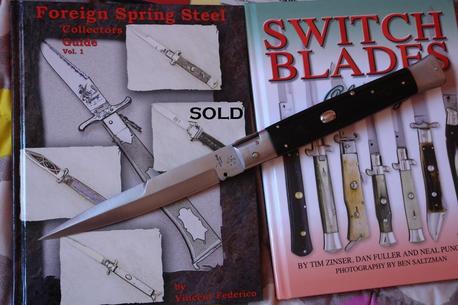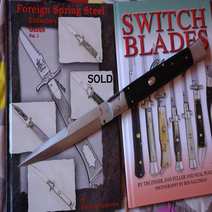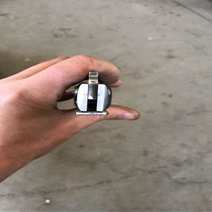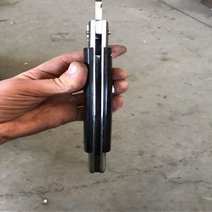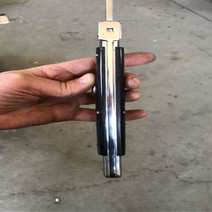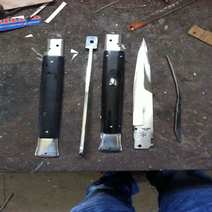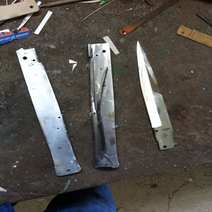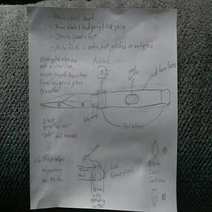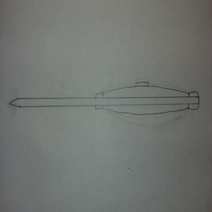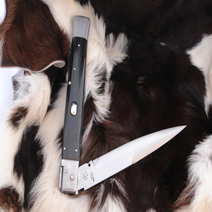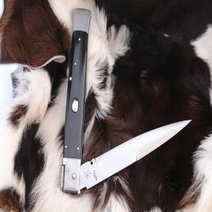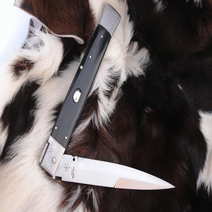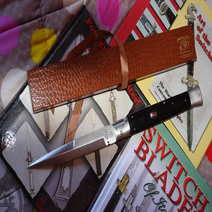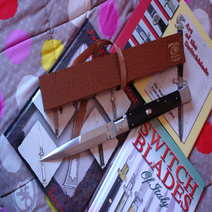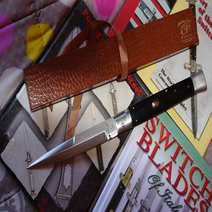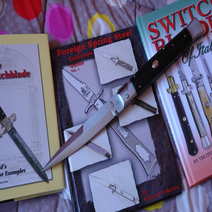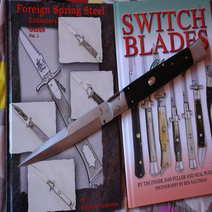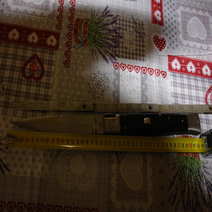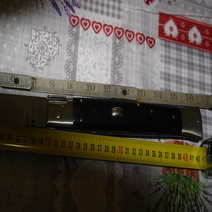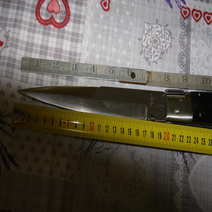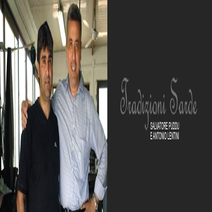Springmesser stiletto stiletto cm 40 Lelle Floris
As seen for italian switchblade, a switchblade (also known as an automatic knife, pushbutton knife, ejector knife, switch, springer, flick knife, or flick blade) is a type of knife with a folding or sliding blade contained in the handle which is opened automatically by a spring when a button, lever, or switch on the handle or bolster is activated.
Most switchblade designs incorporate a locking blade, in which the blade is locked against closure when the spring extends the blade to the fully opened position.
The blade is unlocked by manually operating a mechanism that unlocks the blade and allows it to be folded and locked in the closed position.
The blade is pushed into the open position using a leaf or coil spring that is contained within the handle. A related class of knives can also be opened using one hand, but without utilizing a spring to propel the blade open.
These knife blades are opened using gravity or inertia, and are usually classified with switchblades for legal purposes.
Switchblades have been around since the mid-18th century, and were initially spring-loaded folding spikes for use on guns.
Since then they have been produced as knives in their own right, and used in dozens of countries around the world. This style of folding knife is preferred by people who value the ability to open a knife using only one hand.
This can be very useful in utility work, as well as in emergency situations. Farmers, fishermen, hunters, firefighters, police and EMT personnel, even the home handyman - all value switchblades for their practical function.
Those who are permitted to carry them for self-defense appreciate the quick deployment of the switchblade. Collectors also prize these knives, many of whom are intrigued by the various opening and locking mechanisms that have been produced over the years. These days switchblades come from Italy, Germany, France and America, as well as Russia and China.
They are produced in factories with CNC machinery, and by artisan knife makers working in one-man shops. American switchblades tend to be more of a "tactical" design, while the European knives are more "traditional". But there is much overlap on today's international stage.
In America in 1954, Democratic Rep. James J. Delaney of New York authored the first bill submitted to the U.S. Congress banning the manufacture and sale of switchblades, beginning a wave of legal restrictions worldwide and a consequent decline in their popularity.
In 1955, U.S. newspapers promoted the image of a young delinquent with a stiletto switchblade or flick knife with lurid stories of urban youth gang warfare, often featuring lower class youth and/or racial minorities.
Many politicians jumped on the anti-knife paranoia, using the voting public's irrational fear of out-of-control youth to be elected into political office on promises to control the gangs problem by controlling the switchblade knife.
Only recently have American knife rights organizations worked to start reversing the restrictive legal climate that this hysteria of the 1950's brought about.
Today each state in the United States has its own laws pertaining to these knives, which range from restrictive to permissive. The Federal statutes are applied mainly on U.S. Government property and at the national border.
However in practice all these switchblade laws are rarely enforced, as the times have changed dramatically since gangs armed with chains, baseball bats and switchblade knives posed a problem to law enforcement personnel.
In Italy, the switchblade or automatic opening knife (coltello a scatto) is generally defined as an arma bianca (offensive weapon) rather than a tool.
While legal for adults to purchase, such knives may not be transported outside of one's property nor carried on the person, either concealed or unconcealed, nor may it be carried in a motor vehicle where the knife may be accessed by driver or passengers.
The Italian Ministry of Interior has warned that switchblade knives will be considered offensive weapons in their own right.





